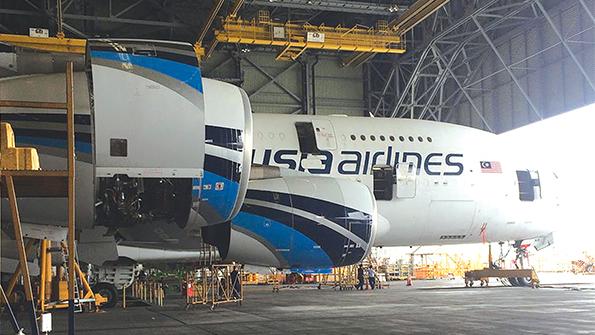
A new maintenance deal has provided valuable insight into the future fleet plans of a restructured Malaysia Airlines.
The flag carrier has signed a multi-year extension to its flight-hour-based component services contract with Airbus for its existing widebody fleet of Airbus A350s, A330s, and A330-200Fs which are operated by MASKargo.
The airline’s website lists 15 A330-300s, six A330-200s, six A350-900s and three A330-200s in its fleet.
Malaysia Airlines and its subsidiaries also operate more than 60 other aircraft, mostly Boeing 737NGs and ATR72s, whose future with the airline is more uncertain
In February, Malaysian sovereign wealth fund Khazanah, the ultimate parent of the airline, committed MYR3.6 billion ($870 million) to the flag carrier, following a scheme of arrangement that involved most of its lessors, which own most of its fleet.
Malaysia Airlines was seeking significant rental concessions, although whether these will be enough to save it from shedding aircraft remains to be seen.
However, the power of state backing to influence the aftermarket is clear to see. Many observers had expected Malaysia Airlines, which was struggling and deeply loss-making even before the crisis, to at least shed its older A330 aircraft, but fresh taxpayer funding means that it can continue to operate and support the widebody aircraft.
Following the component deal, Malaysia Airlines’ chief operations officer, Ahmad Azmi, said: “As we move forward as an airline and share our Malaysian Hospitality worldwide, the Airbus aircraft we fly will become a symbol of reliability and consistency.”
Airbus’s Flight Hour Services Components (FHS-C) contract provides component services including spare pool access, on-site-stock at the main base as well as components engineering and repairs.
Through FHS-C, Airbus guarantees parts availability and secure aircraft technical performance.
